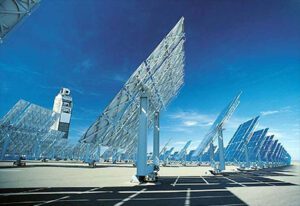Updating Building Codes for Energy Efficiency will Save Home and Business Owners Money
 DOE to Provide $7 Million to Support Updated Building Codes in 24 States
DOE to Provide $7 Million to Support Updated Building Codes in 24 States
The Department of Energy (DOE) announced that it has selected 24 states to receive a total of $7 million to support the adoption of updated, energy-efficient building codes. The funding will expand the existing partnerships between states and the federal government and help states to more rapidly adopt new residential and commercial building codes, as well increase compliance with those codes.
As part of the Administration’s broad efforts to help families and businesses save money by saving energy, these awards will help states and local communities significantly cut the energy intensity of the nation’s buildings sector, which accounts for more than 40 percent of the energy consumed in the U.S.
This technical assistance through the Department’s Building Energy Codes program is being funded under the American Recovery and Reinvestment Act. DOE’s Pacific Northwest National Laboratory (PNNL) will provide the selected states with up to $350,000 in technical assistance that include activities such as code trainings for the building community and adoption outreach to policy makers. Each state has committed to work with DOE to advance adoption, training, and compliance for the updated building codes.
The Recovery Act provided a new goal for DOE’s building codes efforts: 90 % compliance with energy code requirements for each state by 2017. The Recovery Act specifically references two target building codes for states to adopt: Standard 90.1-2007 from the American National Standards Institute (ANSI), the American Society of Heating, Refrigerating and Air Conditioning Engineers (ASHRAE), and the Illuminating Engineering Society of North America (IESNA), and the 2009 International Energy Conservation Code (2009 IECC), which collectively address residential and commercial buildings. Overall, the codes outline a multitude of energy efficiency measures related to the building envelope, HVAC systems, service water heating, power, and lighting.
The Building Energy Code program has resulted in an estimated $16 billion in savings since the program’s start 20 years ago. It is helping to save money for U.S. consumers, dramatically reduce energy use and carbon pollution, and create jobs as part of America’s clean energy economy.
The following states have been selected to receive technical assistance to help them adopt updated building energy codes:
- Alabama—$329,665
- Arizona—$324,500
- Colorado—$257,376
- Georgia—$337,532
- Idaho—$245,263
- Illinois—$332,707
- Kentucky —$347,463
- Maine—$348,264
- Massachusetts—$350,000
- Michigan—$350,000
- Mississippi—$85,735
- Missouri—$158,565
- Montana—$141,705
- Nebraska—$276,417
- Nevada—$347,504
- New Jersey—$346,018
- New Mexico—$308,237
- North Carolina—$346,126
- South Carolina—$256,520
- Texas—$300,415
- Utah—$265,202
- Virginia—$244,799
- Washington—$349,937
- Wisconsin—$349,989
The Building Energy Codes Program is part of the Department of Energy’s Building Technologies Program, which works to develop technologies, techniques, and tools for making buildings more energy efficient, productive, and affordable. DOE works with other government agencies, state and local jurisdictions, national code organizations, and industry partners to promote more efficient building energy codes and provide assistance to those who are impacting energy code adoption and compliance.
For more information, please visit the Building Energy Code program Web site.
![]() Tags: building envelope, clean energy, energy code, energy efficiency, energy efficient building, energy intensity, energy use, engineering, heating refrigerating, illuminating engineering society, illuminating engineering society of north america, international energy conservation code, northwest national laboratory, pacific northwest national laboratory, reduce energy, residential, s pacific, save energy, save money, solar thermal, water heating
Tags: building envelope, clean energy, energy code, energy efficiency, energy efficient building, energy intensity, energy use, engineering, heating refrigerating, illuminating engineering society, illuminating engineering society of north america, international energy conservation code, northwest national laboratory, pacific northwest national laboratory, reduce energy, residential, s pacific, save energy, save money, solar thermal, water heating
Short URL: https://www.solarthermalmagazine.com/?p=5372

